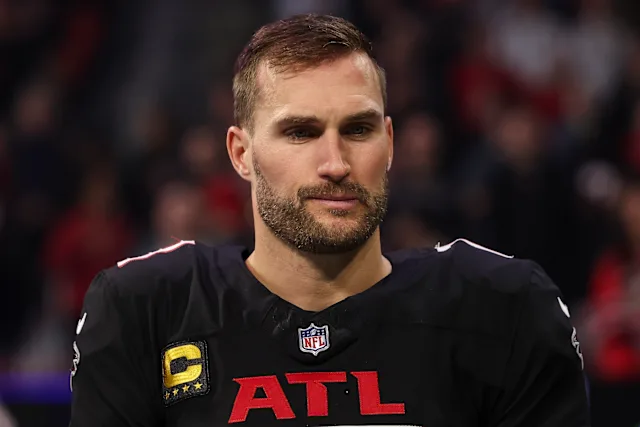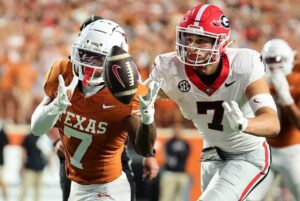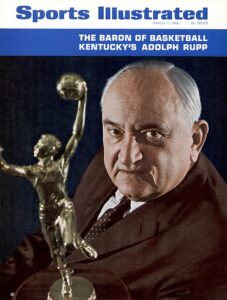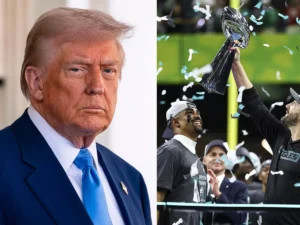
What the Browns’ Joe Flacco Signing Says About Kirk Cousins—and the 2025 NFL Draft
The Cleveland Browns made waves this offseason by re-signing veteran quarterback Joe Flacco to a one-year deal worth up to $8.7 million, including $4.5 million guaranteed. It’s the kind of move that doesn’t usually turn heads in mid-April, but this one has more layers than it might appear on the surface. Flacco’s return not only says something about Cleveland’s short-term quarterback plans—it also sends a message about Kirk Cousins’ standing in Atlanta and how NFL front offices are approaching the 2025 draft class, which is light on elite quarterback talent.
Let’s start with the Browns. Bringing back Flacco isn’t just a nostalgia play or a locker room move. He proved in late 2024 that he still has gas in the tank. When Deshaun Watson went down with another season-ending injury, Flacco stepped in and immediately gave Cleveland a spark. He led the Browns to four regular-season wins down the stretch and a playoff appearance, throwing for over 1,600 yards and 13 touchdowns in five games. In a franchise often haunted by quarterback inconsistency, Flacco was a stabilizing presence.
But Cleveland already has Deshaun Watson under a massive contract. Fully guaranteed and worth $230 million, the Watson deal still looms over everything the Browns do. So why keep Flacco around? Because they have no choice but to hedge. Watson hasn’t played a full season since arriving in Cleveland. He’s shown flashes of the Pro Bowl form he had in Houston, but injuries and inconsistency have defined his Browns tenure. Flacco provides a reliable insurance policy, and the financial commitment suggests that Cleveland believes he could be more than just a break-glass-in-case-of-emergency backup.
Now, how does Kirk Cousins factor in here?
It’s easy to forget amid the quarterback carousel, but Cousins signed a four-year, $180 million deal with the Falcons this offseason. That’s a big number, especially for a player coming off a torn Achilles. Like Watson, Cousins is in his mid-30s. Like Watson, he’s been reliable when healthy. But also like Watson, there are questions about how long that reliability will last.
The Browns’ willingness to bring back an aging quarterback—even with a well-paid starter in place—suggests that teams are becoming more cautious about depth at the position. And it may also hint at something deeper: a lack of belief that the 2025 NFL Draft will produce many plug-and-play quarterbacks.
There’s a growing consensus among scouts and analysts that the 2025 QB class pales in comparison to what we saw in 2023 and 2024. In those years, the league was spoiled by talents like Bryce Young, C.J. Stroud, Caleb Williams, and Drake Maye—players who were expected to step in quickly and become franchise cornerstones. But in 2025? The cupboard looks thin.
Colorado’s Shedeur Sanders is the headliner, and while his pocket presence and leadership are undeniable, questions remain about how well his game will translate to the next level. Beyond him, there’s no slam-dunk top-10 guy. Quinn Ewers at Texas has tools but has been inconsistent. Jalen Milroe at Alabama is a tremendous athlete but still raw as a passer. Cam Ward could rise with a big season at Miami, but he’s far from a sure thing. After that, it’s a collection of developmental prospects—good arms, good frames, but not the kind of players who’ll start Week 1.
That’s where the Browns’ move starts to make more sense. They’re not banking on a rookie quarterback being ready to carry the load if Watson gets hurt again. They’ve seen that movie, and they don’t want to watch the sequel. Flacco is a known quantity, and at $4.5 million guaranteed, he’s a high-end backup who could once again step in and win games if necessary.
It also says something about how the Falcons might view their future. Atlanta could have easily structured Cousins’ contract to draft and develop a quarterback behind him—someone to learn for a year or two before taking over. But they didn’t. They committed big money to Cousins, with real guarantees in the first two seasons. They also signed Taylor Heinicke as a veteran backup and haven’t made strong indications they’ll draft a quarterback this year.
If they believed a long-term answer existed in this class, would they have been so aggressive with Cousins? Maybe, maybe not. But the message is clear: teams that need a quarterback this year aren’t banking on a savior from the college ranks.
Even in places like New England, where the Patriots hold a top-five pick, there’s debate about whether to go quarterback or take a blue-chip tackle like Joe Alt. The same goes for the Giants, who are sitting at No. 6 and could swing on a quarterback but might instead choose to build around Daniel Jones for one more year, or consider trading down and reloading for 2026.
The Browns aren’t picking high enough to land a top quarterback even if they wanted one. But what they’ve done in the offseason—retaining Flacco, doubling down on depth—is part of a broader trend we’re seeing leaguewide. There’s a growing realization that while quarterback remains the most important position in football, the supply just doesn’t meet the demand in this particular draft.
That makes veteran options even more valuable. Flacco is 39, but in a quarterback-starved league, he’s an asset. So is Jacoby Brissett. So is Gardner Minshew. Even Sam Darnold is getting another chance to revive his career in Minnesota. These aren’t stars, but they’re experienced, competent, and—crucially—available.
What the Browns are doing is what smart teams do: prepare for the worst, even while hoping for the best. Watson’s contract makes it difficult to pivot completely, but that doesn’t mean Cleveland is going to gamble everything on him staying upright. They learned last season that the margin for error is razor thin, especially in the AFC North, where defenses are physical and every win matters.
Flacco gives them a fighting chance if Watson can’t go. And if Watson can stay healthy and plays like the Pro Bowl version of himself? Then you’ve got one of the better backup situations in the league. Either way, Cleveland is covered.
The move also speaks to something else—how quickly perceptions can shift. Just a year ago, Flacco was unsigned for most of the offseason. He wasn’t on a roster until late November. Now, after one hot stretch, he’s back with a playoff team and earning nearly $9 million. That’s not just about what he did in December—it’s about what’s not available in the draft.
Teams are more aware than ever that QB play can swing a season. The Jets learned it when Aaron Rodgers tore his Achilles. The Bengals felt it when Joe Burrow went down. The Vikings had to scramble after losing Cousins. The lesson? If you don’t have two quarterbacks you trust, you don’t really have one.
So while Joe Flacco might not seem like the kind of player who could shift draft strategy, his deal is symbolic. It reflects a market correction—an understanding that until a new wave of elite quarterback prospects emerges, teams are going to lean on experience. They’ll sign the 39-year-olds, keep the journeymen around, and avoid reaching for prospects they don’t believe in.
That doesn’t mean we won’t see quarterbacks go early in this draft. We probably will—quarterback desperation always drives someone to pull the trigger. But what the Browns have done is a reminder that not every team is willing to bet on potential alone. In Flacco, they’ve chosen production over projection.
And in doing so, they’ve revealed something that front offices around the league are quietly acknowledging: this isn’t the draft class to gamble your future on a quarterback. Not yet.


